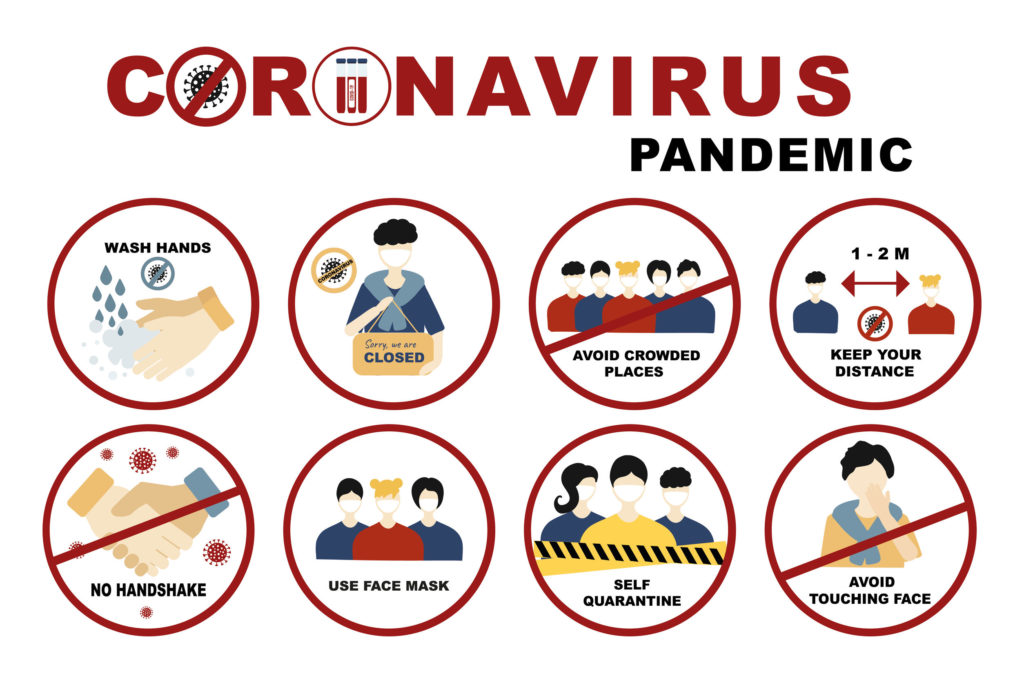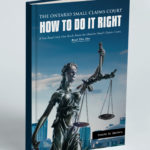
As I write this blog post, the Province of Ontario is under a state of emergency declared under the Emergency Management and Civil Protection Act, which allows the Government of Ontario to make certain orders which include the social distancing rules.
I read an article yesterday about an Oakville father who was rollerblading with his sons in the parking lot of a local community centre, all by themselves. When a by-law enforcement officer approached, the father committed the crime of asking a question to the officer. The by-law officer considered it a personal attack against his authority and issued a ticket for violating an order under the Act. Should he pay the ticket? He shouldn’t. Here’s why.
The Penalty
Section 7.0.11 (1)(a) of the Emergency Management and Civil Protection Act states that the maximum penalty is $100,000.00 and a maximum of 1 year in jail.
However, the Oakville dad was charged under Part I of the Provincial Offences Act (POA). Section 12 of the POA states that if a ticket is issued under Part I of the Act, the term of imprisonment goes away and the maximum fine is $1,000.00. I have more bones to pick about the set fine, but more on that later.
The Order
Ontario Regulation 104/20 of the Emergency Management and Civil Protection Act deals with the use of outdoor recreational facilities. From the news report, the closed outdoor recreational facility seems to be a community centre. Community centres are, by and large, indoor recreational facilities. How can the Oakville dad be charged using an indoor facility outside?
Secondly, the parking lot was not closed off. Section 1(4) of the Regulation states that the Order does not prevent anyone from using a portion of a park or recreational area that is not otherwise closed and does not contain an outdoor recreational amenity as defined within the regulation. Even walking through the parking lot that is not closed is an exception to the Order.
The Legislation Act, 2006
The Emergency Management and Civil Protection Act enacts only temporary powers. Once the emergency has been lifted, all of the Orders (unless extended) will be revoked [fingers crossed].
Section 52 (5) of the Legislation Act, 2006 states that the lesser penalty applies when there is new legislation or regulations that come into force after a person is charged, but before a person is sentenced. The great unknown here is what happens when a provincial offence no longer becomes a provincial offence after someone gets a ticket. It will take a trial to figure that one out.
The Charter of Rights and Freedoms
I foresee three possible Charter issues if any of these social distancing issues end up in court.
The first Charter issue would be under Section 11(i), which is similar to section 52 (5) of the provincial Legislation Act, 2006. If a person is charged, and the penalty is changed from the date of the charge to when the person is sentenced, the convicted person has the benefit of the lesser penalty. The courts would have to weigh in on what happens when a person is charged with a provincial offence and the offence subsequently no longer exists.
The second Charter issue would be the fines. The set fines for certain contraventions of the Emergency Management and Civil Protection Act are $750.00 ($880.00 total including victim surcharge and costs) for failing to comply with an Order and $1,000.00 ($1,255.00 total including victim surcharge and costs) each for obstructing a person enforcing an Order or obstructing a person performing a duty during the emergency. This ignores the common law sentencing principles. As a reminder, the maximum fine for a Part I certificate of offence under the Provincial Offences Act is $1,000.00, regardless of what the penalty in the charging act states. The maximum can’t be the only fine available, even when you factor in general deterrence. In a recent Supreme Court of Canada case, R. v. Boudrault, section 12 of the Charter was invoked because the use of inflexible victim surcharges under the Criminal Code of Canada was determined to be a “cruel and unusual punishment”. I see similarities here.
The third Charter issue to consider is Section 2 (c). It is the section that allows for peaceful assembly in public spaces.
If you have received a ticket under the Emergency Management and Civil Protection Act, call me at 1-855-566-4089 or go to my contact page.

